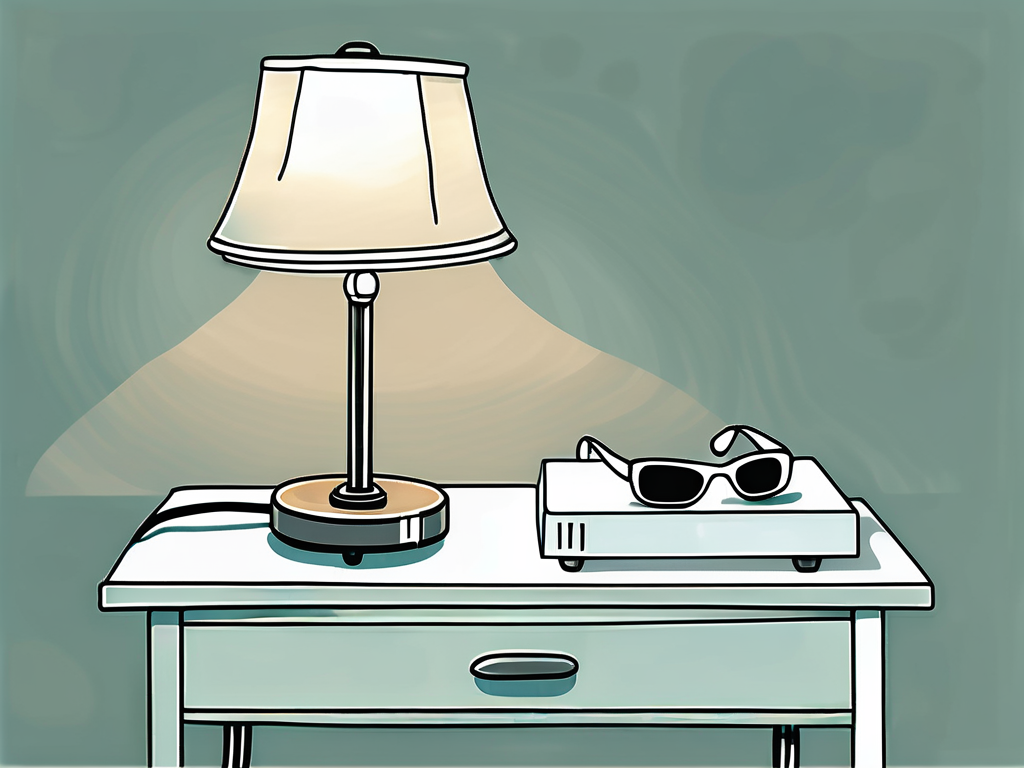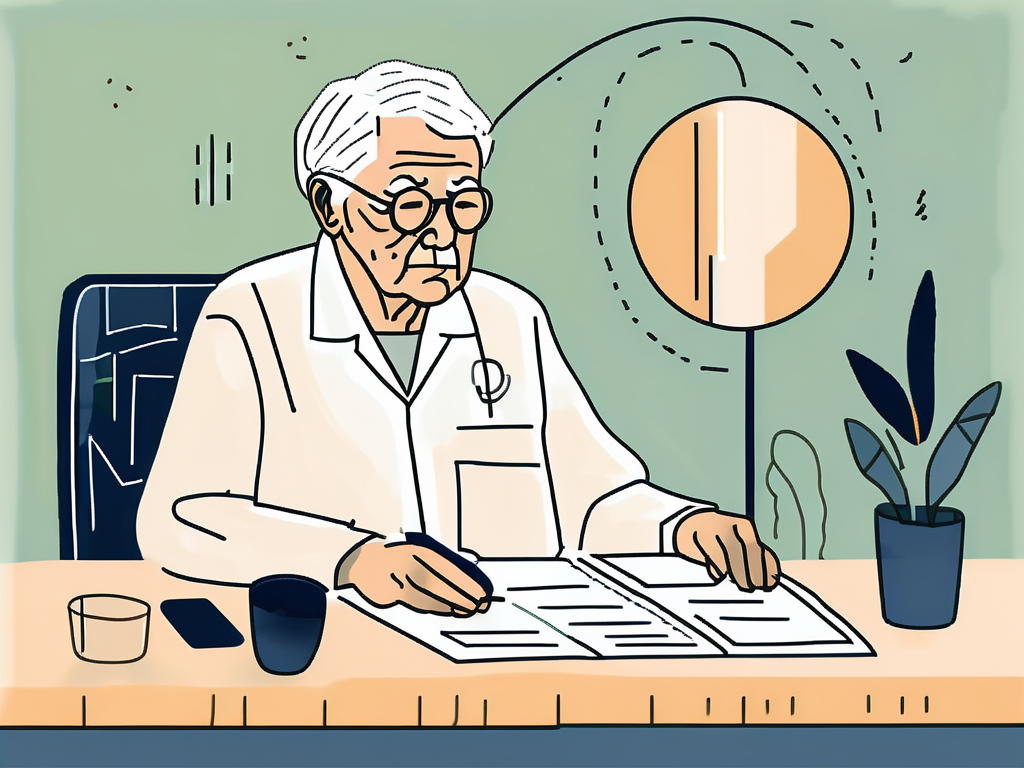Mouth guards play a vital role in maintaining dental health, especially in elderly patients. As individuals age, they may experience various age-related dental issues that necessitate the use of mouth guards. Moreover, selecting the appropriate material and ensuring a customized fit are crucial factors to consider when addressing the unique needs of elderly patients. Additionally, understanding the proper maintenance and cleaning routines, as well as potential challenges and solutions, is essential in optimizing the efficacy of mouth guards for elderly patients.
Understanding the Need for Mouth Guards in Elderly Patients
Mouth guards serve as protective devices that guard against teeth grinding, also known as bruxism, and jaw clenching during sleep. These habits, which can be exacerbated in elderly patients, can cause significant damage to the teeth and jaw. Therefore, mouth guards are essential in preventing tooth enamel erosion, tooth fractures, jaw pain, and related issues.
Moreover, the prevalence of bruxism tends to increase with age, making elderly patients more susceptible to its harmful effects. Factors such as stress, medication side effects, and underlying medical conditions can also contribute to the development or worsening of bruxism in this demographic. Consequently, the use of mouth guards becomes crucial in safeguarding the oral health of elderly individuals and preserving their natural teeth for as long as possible.
The Role of Mouth Guards in Dental Health
Mouth guards act as a physical barrier between the upper and lower teeth, absorbing the forces generated by teeth grinding and clenching. By redistributing the pressure and reducing contact between the teeth, mouth guards help alleviate strain on the jaw joint and minimize the risk of tooth damage. They also assist in relieving muscle tension, which can contribute to headaches and facial pain.
Furthermore, mouth guards promote better sleep quality by reducing disruptions caused by bruxism, ultimately leading to improved overall well-being. By addressing the underlying issues of teeth grinding and jaw clenching, these oral appliances not only protect the teeth but also support proper jaw alignment and function, enhancing the individual's oral health in the long run.
Age-Related Dental Issues that Require Mouth Guards
As individuals age, they may encounter specific dental issues that necessitate the use of mouth guards. These include the thinning of tooth enamel, receding gums, and the overall wear and tear of teeth due to a lifetime of use. Mouth guards provide a protective cushioning layer, particularly for those with compromised tooth structures or teeth that have been restored through dental interventions such as crowns or fillings.
Moreover, elderly patients often experience changes in their bite alignment and jaw muscle strength, making them more vulnerable to the consequences of untreated bruxism. Mouth guards play a vital role in preserving the integrity of existing dental work and preventing further damage to the teeth and supporting structures in older individuals. By addressing age-related dental concerns proactively, mouth guards contribute to maintaining oral health and enhancing the quality of life for elderly patients.
Material Choices for Mouth Guards for the Elderly
When choosing the material for mouth guards in elderly patients, several factors must be considered, including durability, comfort, and specific patient needs.
Ensuring the longevity of mouth guards for elderly individuals is paramount, as they are more prone to teeth grinding and clenching. Durability is key in withstanding the repetitive forces exerted during sleep. While hard acrylic guards are commonly used for their strength and longevity, they may not always provide the desired level of comfort. In such cases, exploring softer materials like dual-layered laminates or thermoplastic options can offer a balance between durability and comfort, catering to the individual needs of elderly patients.
Evaluating Durability and Comfort
Durable materials capable of withstanding the forces exerted during teeth grinding and clenching are particularly important for elderly patients. While hard acrylic guards are widely used due to their strength, they may be less comfortable for some individuals. Therefore, softer and more flexible materials, such as dual-layered laminates or thermoplastic materials, should also be considered to provide optimal patient comfort.
Moreover, considering the unique oral conditions of elderly patients, materials that are gentle on the gums and oral tissues are essential. Abrasive materials or ill-fitting guards can cause discomfort and potential damage to the delicate oral mucosa. Therefore, selecting materials with smooth textures and customized fittings can enhance comfort and promote better compliance with wearing the mouth guard regularly.
Hypoallergenic Materials for Sensitive Patients
For elderly patients with allergies or sensitivities, selecting hypoallergenic materials is crucial to prevent adverse reactions. Certain individuals may have sensitivities to latex or specific metals commonly found in mouth guard materials. Therefore, it is essential to use hypoallergenic options, such as medical-grade silicone or latex-free thermoplastic materials, to ensure patient safety and comfort.
In addition to considering hypoallergenic properties, the ease of maintenance and cleaning should also be taken into account when choosing mouth guard materials for elderly patients. Materials that are resistant to bacterial growth and can be easily cleaned with mild solutions can help prevent oral infections and maintain overall oral health in this vulnerable population.
Customizing the Fit for Elderly Patients
An accurate and customized fit is paramount in ensuring the effectiveness of mouth guards for elderly patients. As individuals age, their dental needs evolve, requiring tailored solutions to address specific concerns and provide optimal comfort and protection.

When it comes to mouth guards for elderly patients, customization is key. Not only does a personalized fit enhance comfort, but it also plays a crucial role in protecting the teeth and jaw from the damaging effects of bruxism, or teeth grinding. By working closely with dental professionals, elderly patients can benefit from a mouth guard that is uniquely crafted to meet their individual requirements and ensure a restful night's sleep.
Importance of Precise Fit in Mouth Guards
A precise fit guarantees that the mouth guard covers the entire dental arch and safeguards the teeth against excessive grinding or clenching forces. Custom-fit mouth guards, created by dental professionals using dental impressions, offer the best fit and comfort for elderly patients. These tailored appliances not only provide protection against wear and tear but also contribute to overall oral health by maintaining proper alignment and reducing strain on the jaw joints.
Adjustments for Age-Related Jaw and Teeth Changes
Elderly patients often experience changes in their jaw structure and tooth alignment. Dental professionals must consider these changes when creating or adjusting mouth guards for elderly patients. Modifications may include accommodating misaligned teeth, bridgework, or tooth extractions to ensure an optimal fit that promotes proper dental alignment during sleep. By addressing age-related concerns and adapting the mouth guard accordingly, seniors can enjoy improved comfort and protection, enhancing their quality of life and oral health.
Maintenance and Cleaning of Mouth Guards
Proper maintenance and regular cleaning routines are essential in maximizing the longevity and effectiveness of mouth guards in elderly patients. Mouth guards, also known as occlusal splints, are custom-made dental appliances designed to protect the teeth and jaws from the harmful effects of bruxism, or teeth grinding, especially common during sleep in elderly individuals.
Ensuring the cleanliness and proper care of mouth guards not only extends their lifespan but also promotes oral health by reducing the risk of bacterial growth and maintaining the integrity of the appliance.
Daily Cleaning Routine for Mouth Guards
Elderly patients should be advised to clean their mouth guards daily using non-abrasive toothpaste and a soft toothbrush. Gently brushing the mouth guard helps remove any plaque or debris that may have accumulated during use. It is important to avoid using harsh chemicals or abrasive cleaners, as these can damage the mouth guard's material and compromise its effectiveness. Additionally, rinsing the mouth guard thoroughly after each use helps prevent the buildup of bacteria and plaque. Storing the mouth guard in a clean and dry container is also recommended to maintain hygiene and prevent contamination.
Long-Term Care and Replacement Schedule
While mouth guards are durable, they are not indestructible, and their lifespan can vary depending on an individual's usage and wear patterns. Dental professionals should instruct elderly patients to have their mouth guards routinely assessed for signs of wear or damage. Regular check-ups with a dentist or prosthodontist can help identify any issues with the mouth guard early on, allowing for timely repairs or replacements. Consequently, a replacement schedule should be established to ensure the continued effectiveness of the mouth guard in protecting against teeth grinding and jaw clenching.
By following a comprehensive maintenance and cleaning routine, elderly patients can preserve the quality and functionality of their mouth guards, ultimately safeguarding their oral health and overall well-being.
Potential Challenges and Solutions
Elderly patients may encounter certain challenges when wearing mouth guards initially. Addressing these concerns with appropriate solutions is crucial to ensure patient compliance and comfort.

Overcoming Initial Discomfort and Adjustment Period
Wearing a mouth guard may initially feel unfamiliar and uncomfortable for elderly patients. Dental professionals should educate patients about the importance of persevering through this adjustment period. Providing reassurance, emphasizing the long-term benefits, and customizing the fit to enhance comfort are effective strategies to overcome initial discomfort.
Addressing Common Concerns and Misconceptions
Elderly patients may express concerns or hold misconceptions about mouth guards. Dental professionals should address these concerns by thoroughly explaining the purpose and benefits of mouth guards. Assuaging worries about potential speech impairments, difficulties breathing, or aesthetic concerns can help elderly patients understand and embrace their mouth guard as an essential dental appliance.
Conclusion
In conclusion, special considerations for mouth guards in elderly patients are essential in ensuring their dental health and overall well-being. Understanding the need for mouth guards, selecting appropriate materials, customizing the fit, establishing proper maintenance routines, and addressing potential challenges are vital components in providing optimal care to elderly patients. By incorporating these considerations, dental professionals can contribute to the improved oral health and enhanced quality of life for elderly patients who rely on mouth guards for their dental well-being.














